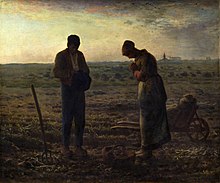St Nicholas’ Catholic Church, Chandos Street, Winchcombe GL54 5HX

Our parish is linked with St Joseph’s in Tewkesbury and also St Thomas More Cheltenham, all served by Father Joby Lukose. This results in a busy schedule for him and all queries should be directed in the first instance to the parish office, located in Tewkesbury.
If you do need to contact a priest urgently, in the case of severe ill health, the Presbytery number is 01242 437525. and you will be able to leave a voicemail.
The main parish office Tewkesbury 01684 293273 is staffed by Administrator Chris Davies 8.30am – 1.30pm each Monday – Thursday.
Alternatively, send an email to the address given on our parish newsletter, which you will find on the following page.
Mass times
Mass times for general services (Sunday 11.00am and Thursday 10.00am) are found on the link for Mass times (click on the house above, then “visit site”. On the top right of this page there are three horizontal menu bars, click on these and select news letters) but it’s best to check the news letter for any changes especially at Christmas and Easter.
Click on the link below to see what is happening at the Diocesan Headquarters in Clifton.

Help your church by volunteering

Other members of our parish volunteer working behind the scenes, if you want to help by joining in contact any of the following:
Our sacristans: Caroline and Pat
Musicians: Tom and Renee
Eucharistic ministers: Fr Joby, Avril, Gi, Mark, Michael, Carol, Michele and Gilly.
Children’s liturgy: Michele.
Catechists: Michael, Belinda, Barbara, Richard, Bob, Beate, Marian, Ewoud and Carol.
Parish pastoral councillors: Fr Joby, Avril, Beate, Becki, Carol, Celia, Emily, Jonathan, Margaret, Marian, Matthew, Pete K, Renée, William.
Finance committee: Matthew, Richard, Nick, Belinda, Fr Joby.
Fundraising committee: Carol, Renée V, Gi, Marian, Barbara, Pat, Avril, Carmel.
Food bank collection: Gi.
Church cleaning rota: Barbara, Gi, Pete, Carol, Avril, Marian, Margot.
Refreshments after Mass rota: Barbara
Flower arrangers: Anne, Maureen, Lydia, Jill, Barbara M, Joan.
Gardening: Barbara (co-ordinator) Renée V, David, Avril, James, Belinda, Gi, Pete, Carol and Matthew.
Treasurer: Matthew.
Churches together: Renée and Margaret
Web site updates: Pete K, Beate and Matthew.
Notice board coordinator: David.
Synod contact: Jonathan.
Administrator: Carol.
Our ‘welcomers’ who work on a rota system in each of our churches so that visitors can know that their presence among us is valued.
Car parking when visiting St Nicholas
We have a small private car park adjacent to the church which can park up to ten vehicles.

Public car parks are shown on the map below




St Nicholas’s replacement Angelus bell
Our existing bell is over 100 years old, it is being moved from the roof to inside the church and a new bell is being installed and once again it’s going to ring the Angelus daily.
The Angelus (/ˈændʒələs/; Latin for “angel”) is a Catholic devotion commemorating the Incarnationof Christ. As with many Catholic prayers, the name Angelus is derived from its incipit—the first few words of the text: Angelus Domini nuntiavit Mariæ (“The Angel of the Lord declared unto Mary“). The devotion is practised by reciting as versicle and response three Biblical verses narrating the mystery, alternating with the prayer “Hail Mary“. The Angelus exemplifies a species of prayers called the “prayer of the devotee”.[1]

The devotion is traditionally recited in Roman Catholic churches, convents, monasteries and by the faithful three times a day:[2] in the morning, at noon and in the evening (usually just before or after Vespers). The devotion is also observed by some Western Rite Orthodox, Lutheran, and Anglican churches.[3]
The Angelus is usually accompanied by the ringing of the Angelus church bells, which is a call to prayer and to spread goodwill to everyone. The angel referred to in the prayer is Gabriel, a messenger of God who revealed to the Virgin Mary that she would conceive a child to be born the Son of God (Luke 1:26–38).[4] In Eastertide, the Angelus is replaced by the Regina Coeli.

